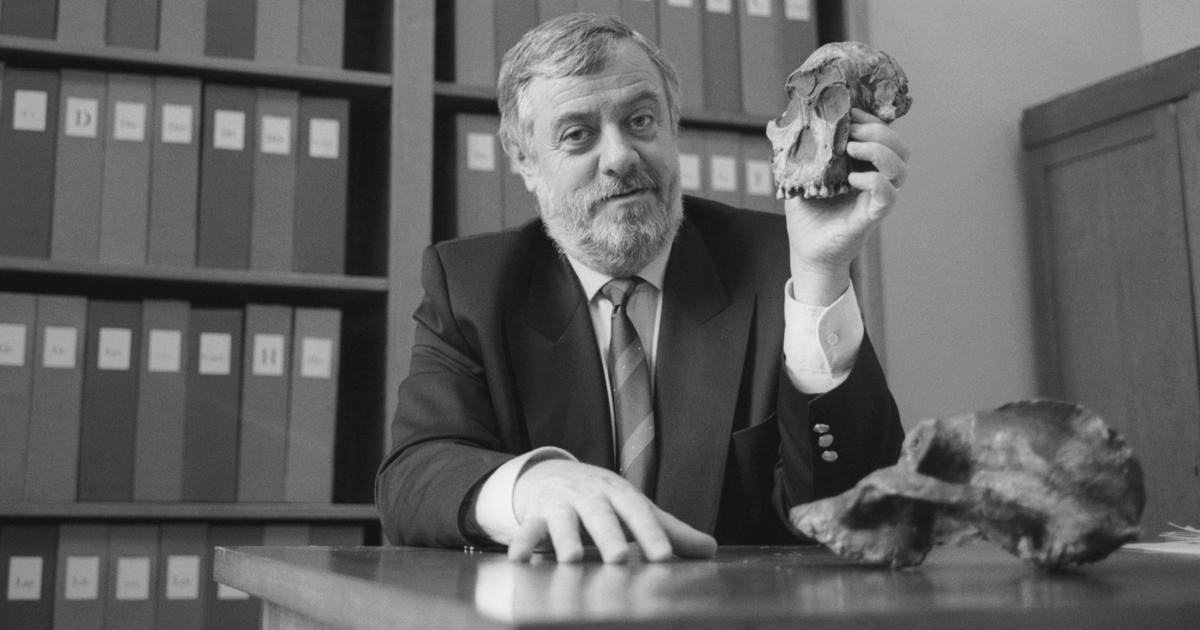The mysteries of our ancestry.
“Extensive program!”
, General de Gaulle could have said.
Some of them were mentioned during an “Apostrophes” broadcast on December 16, 1983, and available on Madelen.
That evening, Bernard Pivot receives, among others, Yves Coppens, who died this week on the eve of his 88th birthday.
>> Discover here the program of "Apostrophes" with Yves Coppens
This French paleontologist became famous throughout the world thanks to the discovery, on November 24, 1974, in Haddar, Ethiopia, of a relatively complete fossil of Australopithecus, demonstrating, for the first time that the origin of bipeds dates back to more than three million years.
With about thirty researchers accompanying him on this expedition, he had listened to
Lucy in the Sky with Diamonds
, a Beatles song written by John Lennon.
This is how this treasure for science was baptized Lucy.
Yves Coppens, who was an example of modesty, often regretted that this moment so strong sometimes gives the feeling that he had done nothing before, but also afterwards.
It is therefore important to remember, for his posterity, the reality of his journey.
Read alsoYves Coppens, fossils and men
Breton dolmens at the Collège de France
Between two trips around the world for excavations, symposiums or conferences, he found the time to teach at the Museum of Natural History, the Museum of Man, and the College de France.
He was also a member of about ten Academies on the planet, starting, in France, with that of Science and Medicine.
In 2002, at the request of Jacques Chirac, he worked on an Environmental Charter.
In 2006, the President of the Republic appointed him to the High Council for Science and Technology.
His parents did not imagine this when, in the mid-1930s, they discovered their son's passion for a dolmen close to the family home, near Vannes.
He can barely walk and talk, but spends hours in front of these horizontal stones.
A few years later, something clicked when Yves saw his father, a renowned physicist, working on pieces of moon dust, with the hope of fixing the dating of the planet.
This is how he begins to study geology, in particular in second and first classes, where his physics teacher is none other than Dad!
Read alsoExtraordinary discovery of the complete skull of an ancestor of Lucy
At the age of 20, Yves Coppens carried out his first excavations on a tiny peninsula in the north of Finistère.
He discovered, in particular, remains of pottery probably coming from the sinking of a ship a few decades, even a few hundred years earlier.
In 1966, at the age of 22, the day after obtaining his doctorate, he entered the CNRS, where he specialized in the study of the tertiary and quaternary periods.
Only a few months after his arrival, he went on a mission to Ethiopia.
One morning, he learns that a thousand kilometers away, pieces of bone apparently several million years old have been discovered.
This is how he sets up an expedition that will end with the discovery of a mandible more than two and a half million years old.
Instinctively, he says to himself that he should not leave the country because there may be something else to find.
He plans to live there for a few months.
He will stay seven years!
He will update, among other things, in 1973, a piece of knee which he baptizes Claire, in a nod to a film by Éric Rohmer,
Claire's knee.
A small step for man before the discovery of Lucy, which has become a big step for humanity.

